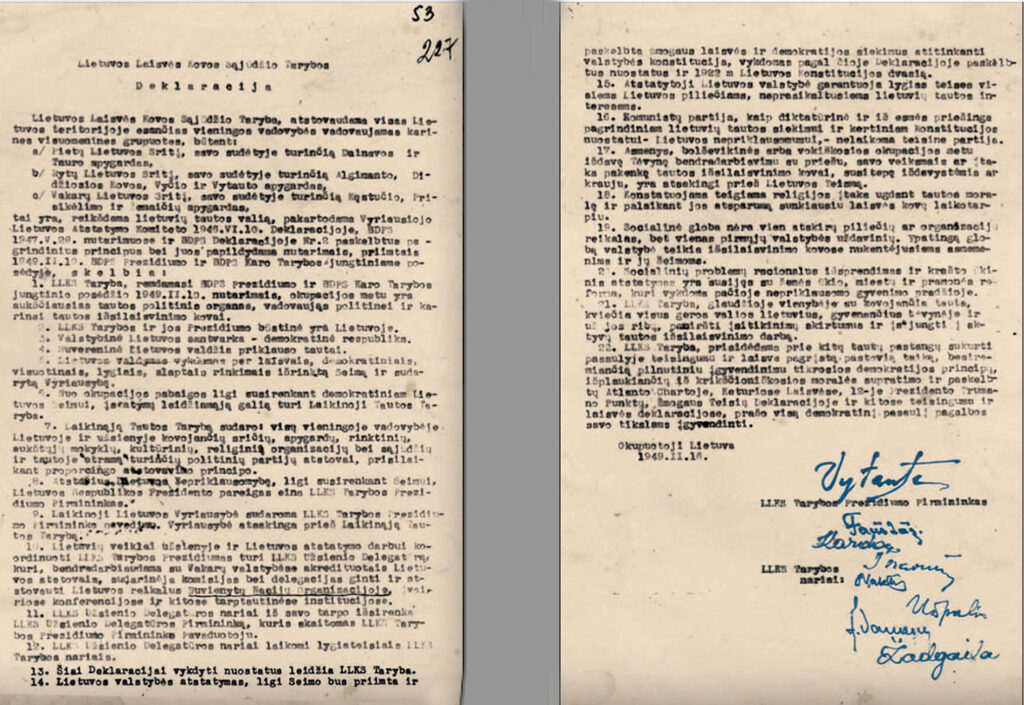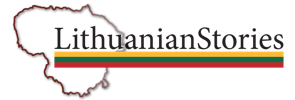“One of the most important things is that freedom is not a gift. For freedom you have to fight, defend yourself, sometimes even sacrifice the most important thing: life”. With these words Paulė Kuzmickienė, member of the Lithuanian Parliament, begins the interview we did with her for our project dedicated to the resistance of the Baltic country against the Soviet occupation, and to its commander Jonas Žemaitis, nom de guerre, Vytautas.
WATCH THE VIDEO
The memory program
Paulė Kuzmickienė is the responsible for the project dedicated to memory which aims to raise awareness of the history of the resistance and spread knowledge about it.
“People’s attention (for that historical period) is certainly there, and it seems to me that it is increasing – says Kuzmickienė. There is interest in society, there is historical research. There are studies by the Genocide Research Center and Resistance.There is the attention of individual historians, enthusiasts, volunteers. And even in the face of the war in Ukraine we all understand a little better the meaning of the defense of freedom and what value it has”.
However, there are still many things to do to ensure that the fight for freedom in the country, which was once again occupied by the Soviet Union after the Second World War, becomes everyone’s heritage.
“The main objective of the program is to prepare for 2029, when the anniversary of the declaration will be celebrated”.
The reference is to the declaration of independence drawn up by the Council of the Freedom Movement of Lithuania, by the partisans, on 16 February 1949. That same day the Council appointed Jonas Žemaitis as commander.
The Declaration of 1949
A fundamental document for the history of Lithuania, whose democracy today has rooted on the same principles written by the fighters years ago.
“…Žemaitis’ strength was his education and his strategic skills. This allowed him to do what seemed impossible. Such leadership is still in great demand today, not the superficial kind. But real politics, the one that makes fundamental decisions on what is necessary today”.
“In the person of Žemaitis we can find many things that are important for the Lithuanian state, and unfortunately little is said about him today”, continues the parliamentarian.
The constitutional meaning of the 1949 declaration must be made known to everyone. “…it must be present not only in our minds, in documents, but also in our hearts”.

The aims of the program
Enhance the meaning of the resistance, of the 1949 declaration, highlight the figure of its commander through various initiatives.
Not only monuments, but also transforming. For example, the place that houses the Žemaitis monument, in front of the Ministry of Defense in Vilnius. It could become a place dedicated to all freedom fighters.
Also starting the creation of a Center dedicated to that historical period, which speaks not only of the armed partisan resistance, but also of the unarmed one which continued until the regaining of independence in March 1990.
“The program – says Kuzmickienė – will allow us to concentrate on the most important works without dispersing resources for single publications or single activities”.
It’s not just about erecting monuments, but also taking advantage of new technologies, such as apps, which can help bring new generations closer to a historical period that seems distant from today’s Lithuania.
Just as it is important that museums and education centers are involved in the program.
Žemaitis project
The interview is part of the project “Jonas Žemaitis, commander of fighting Lithuania”, created by the “Baltika-Baltijos Istorijos” Association and LithuanianStories to remember the figure of the commander, with the precious support of Kotryna Buono and Ana Luisa Monse, Žemaitis’ great-grandchildren.
The initiative is partially financed by the Ministry of Defense of the Republic of Lithuania.
The project involves a series of video interviews with figures from civil society in today Lithuania. Historians, representatives of institutions, ordinary citizens. People who are interested in and pass on the memory of the partisan resistance against the Soviet occupation.
WATCH THE VIDEO

